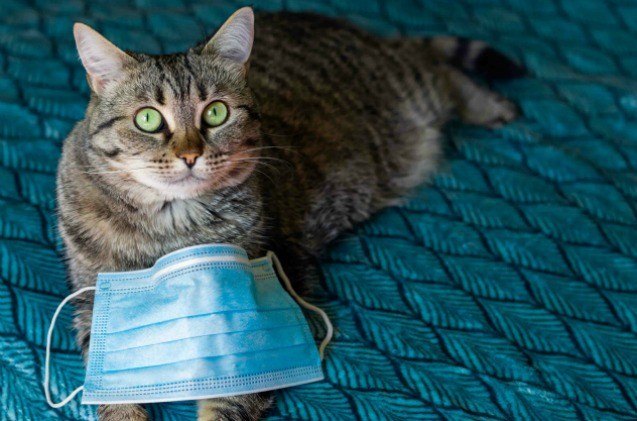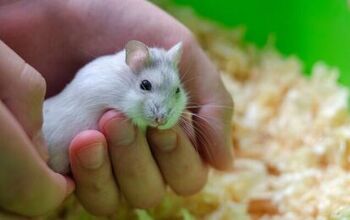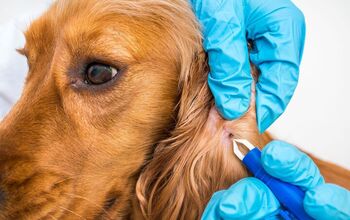First Time In US Cats Test Positive For COVID-19

While what we know about COVID-19 changes on a regular basis, the United States Department of Agriculture’s (USDA) National Veterinary Services Laboratories (NVSL) have reported that two cats living in separate areas of New York State have tested positive for SARS-CoV-2, the virus that causes COVID-19.
The cats, both pets, are the first to test positive in the United States, and both have a mild respiratory illness but are expected to make a full recovery.
The number of animals reportedly positive for SARS-CoV-2 in the world is still small, and those that have were mostly cases where they’d been in close contact with a person who had COVID-19.
Related: What Experts Say You Need To Know About COVID-19 And Your Dog
On April 22, a New York veterinarian tested the first cat after it was showing signs of mild respiratory distress. The cat lived in a home where no individuals were confirmed as ill or symptomatic with COVID-19. It is believed that the virus may have been transmitted to the cat by mildly ill or household members who were asymptomatic, or through an infected person not inside the cat’s home.
The second cat’s owner tested positive for COVID-19 before its mild respiratory illness, but another cat in the house has shown no signs of symptoms or the virus.
It’s still not recommended to do routine testing for animals, as the number of positive cases out of millions of animals and pets of those infected is still negligible. But, because The World Health Organization for Animal Health (OIE) classifies SARS-CoV-2 as an emerging disease, the USDA must report any confirmed animal infections to the OIE.
It’s important to note that there is still no evidence that pets play any part in spreading the virus in the United States or anywhere else for that matter. This awareness is important so no companion animals are treated poorly as a result of concerns they spread the virus. The Centers For Disease Control continues to suggest more research is needed to see if and how different animals, pets included, are possibly affected. Early research suggests that cats and ferrets may be more prone, but there’s nothing conclusive about why that might be.
Good tips to continue following during this time are:
- Keep cats indoors if possible and prevent them from interacting with other people or animals.
- Keep dogs on leash when outside walking, and stay 6 feet from other animals and people.
- Avoid dog parks and/or public places where dogs and groups of people may gather.
- Keep your pets from interacting with other animals or people outside of your home.
If you suspect you are ill with COVID-19, or it is confirmed, it’s wise to isolate yourself from your pets and other animals. Try to have another member of your household take care of your pets if you’re sick to avoid contact. Don’t snuggle, pet or share food with your pet, and don’t let your pet kiss, lick or share your bedding if you’re sick.
Most important, if you are the caregiver for your pet when you’re sick, cover your face and make sure you wash your hands thoroughly before and after you have any interaction.
Related: COVID-19 Silver Lining: More People Fostering Pets
Mike Bober is the president and CEO of The Pet Industry Joint Advisory Council. He says that it’s important we ensure the confidence the public has in the USDA and CDC guidance that shows no evidence of pets playing any role in spreading this virus in the United States, so as to protect the welfare of animals. Bober said that hundreds of thousands of people globally have brought pets into their homes, and the comfort, stress relief and health benefits both of physical and mental nature they’ve brought during this crisis is invaluable. We need to commit to protecting our pet’s health and welfare as we do our own, and consult veterinarians if there are any concerns.
The CDC also noted that testing animals does NOT affect the testing availability for humans, and widespread, routine testing of animals is still not necessary or needed.

More by Lori Ennis






















